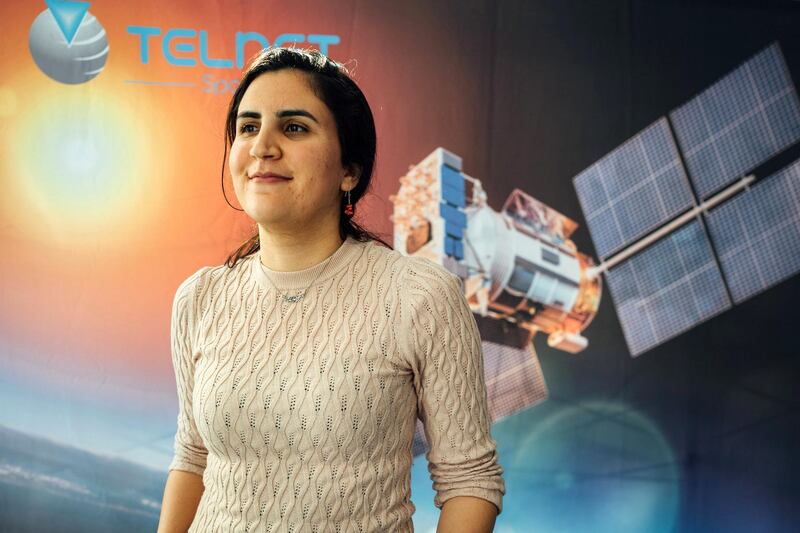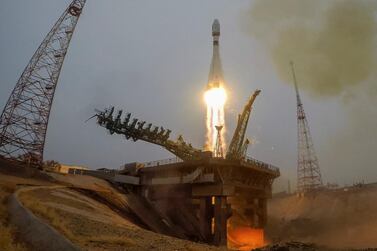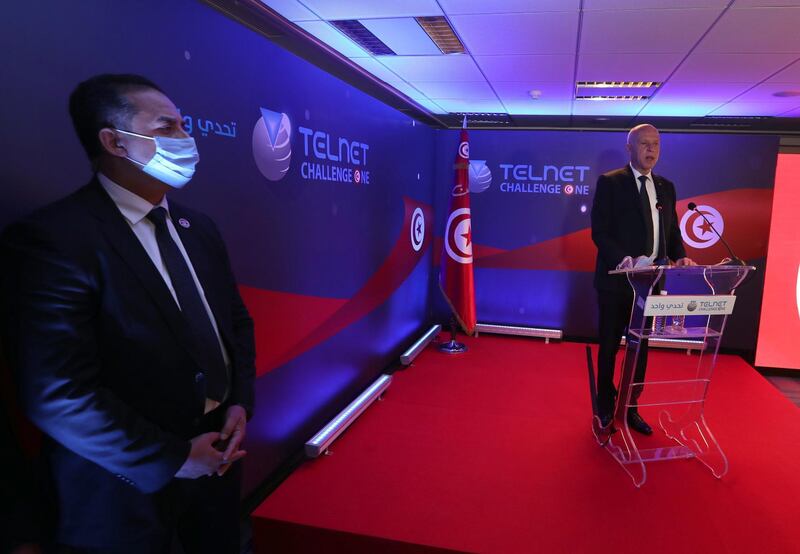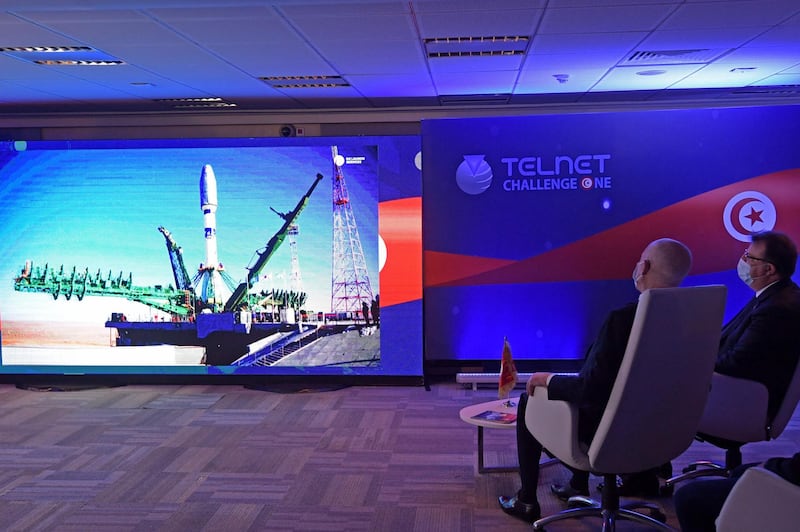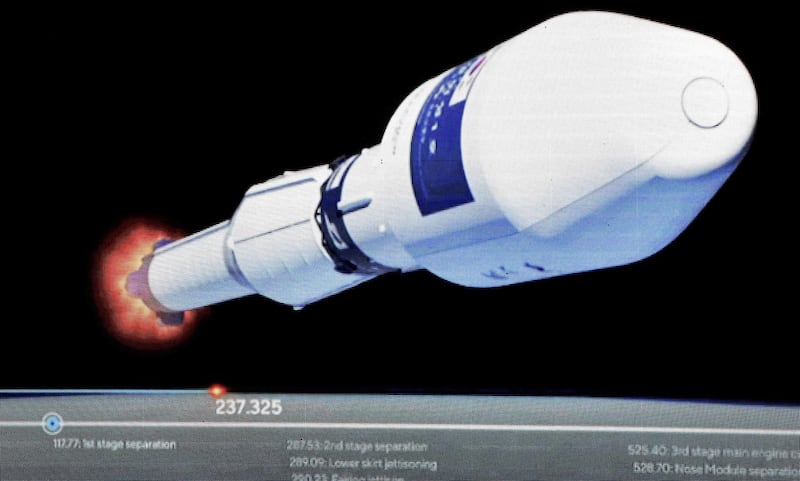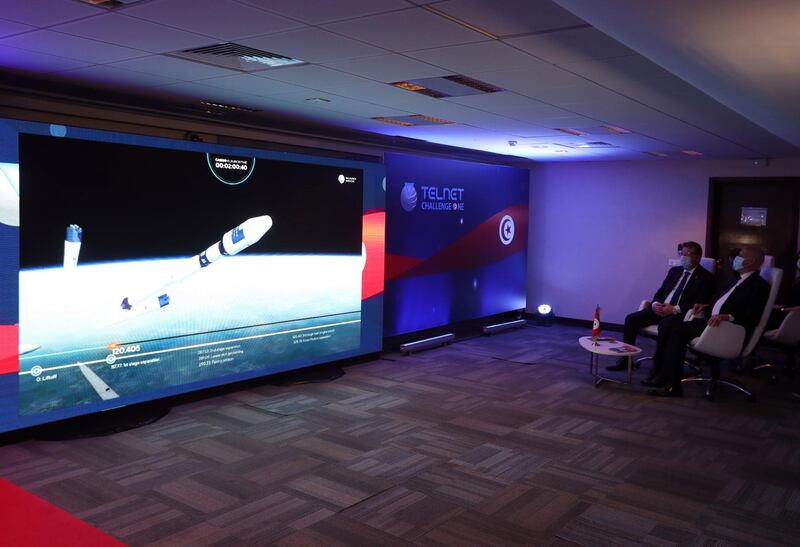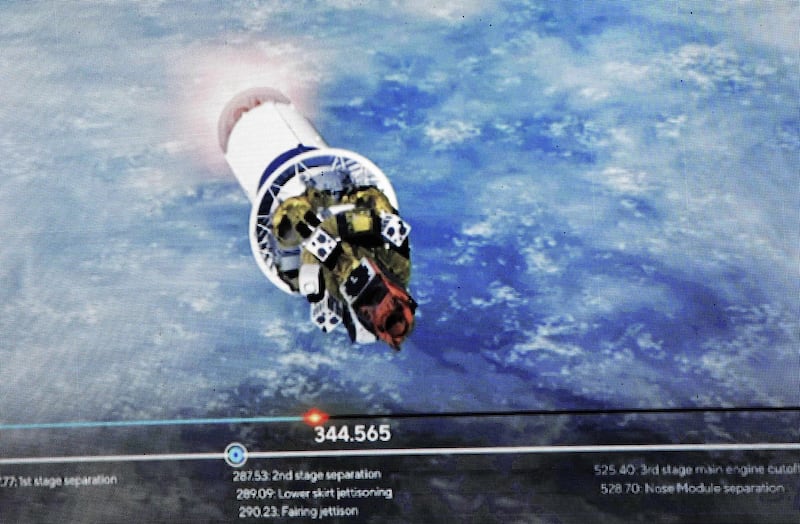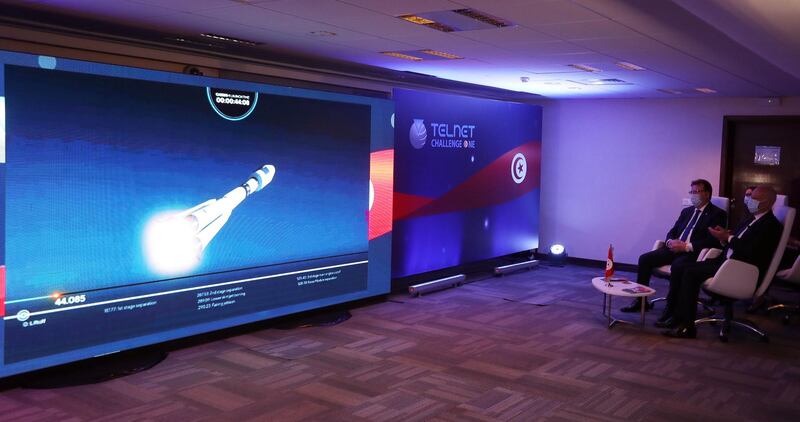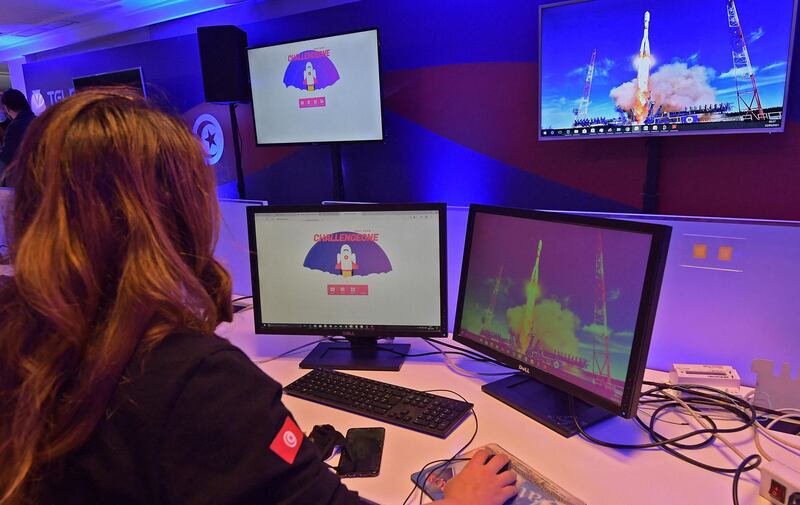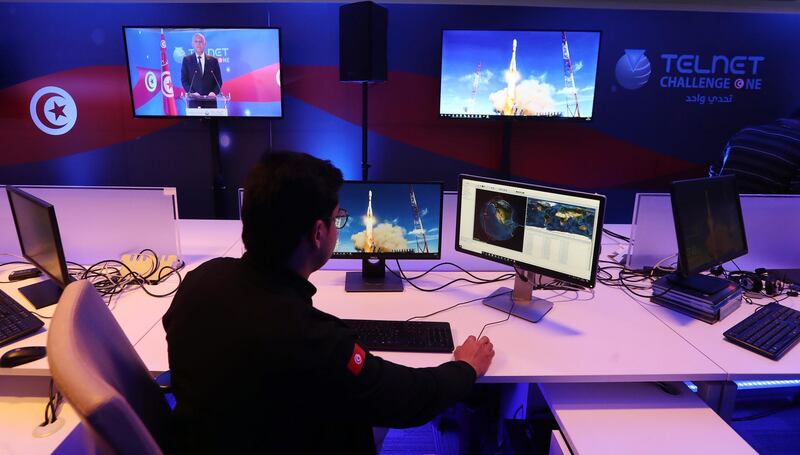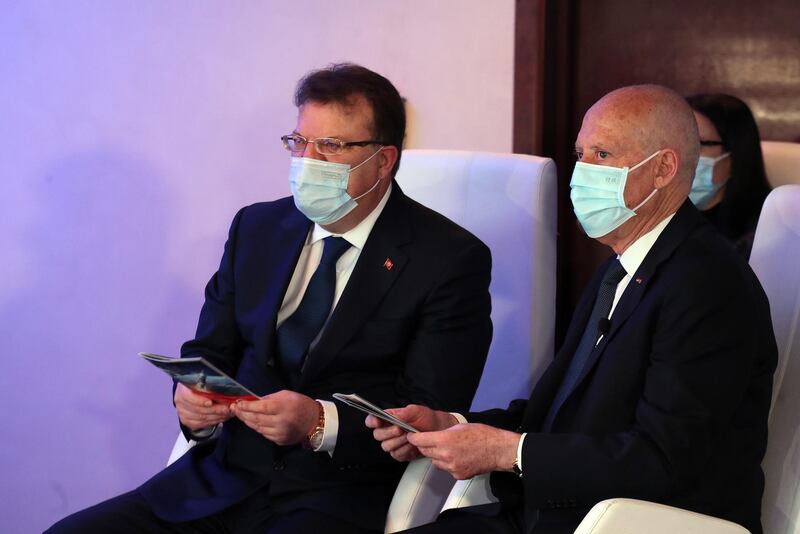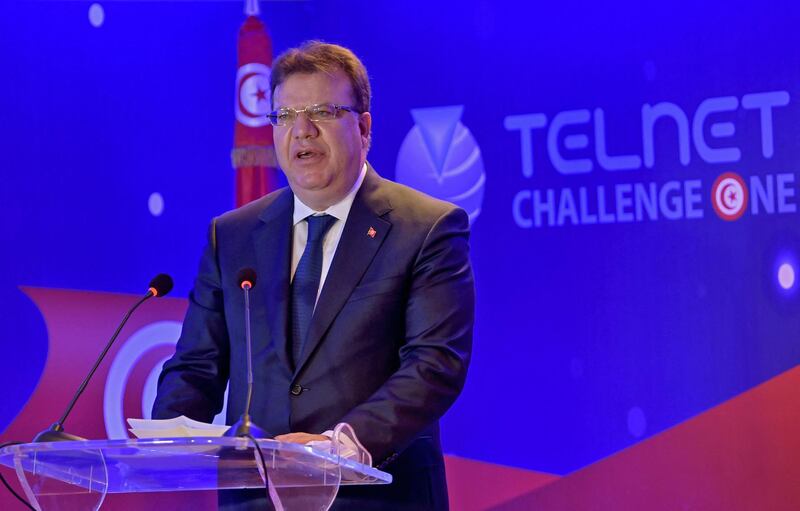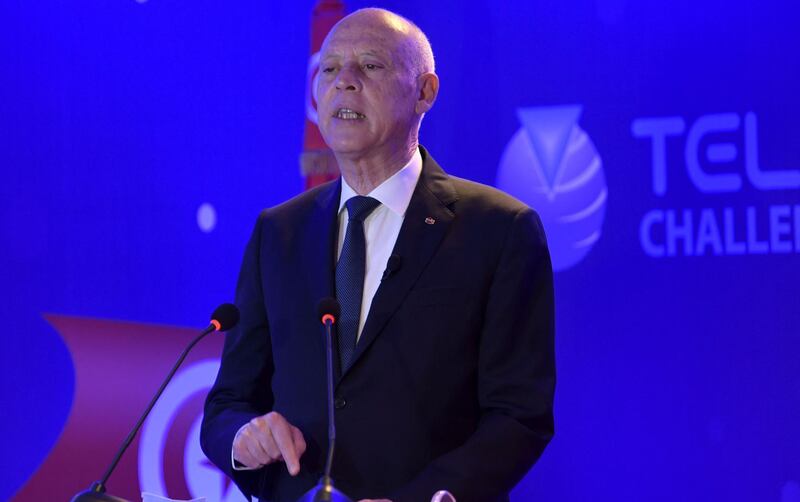Tunisians cheered last month as Challenge-1, the country's first domestically-built satellite, blasted off aboard a Russian Soyuz rocket from the Baikonur cosmodrome in Kazakhstan.
But for the team of engineers supporting the project at the telecoms giant Telnet, the real moment of victory came later in the day when the team received the first signal from the satellite.
“Hearing its heartbeat for the first time was incredible,” said Haifa Triki, 27, a payload specialist on the team.
UAE's DMSat-1 satellite launches into space
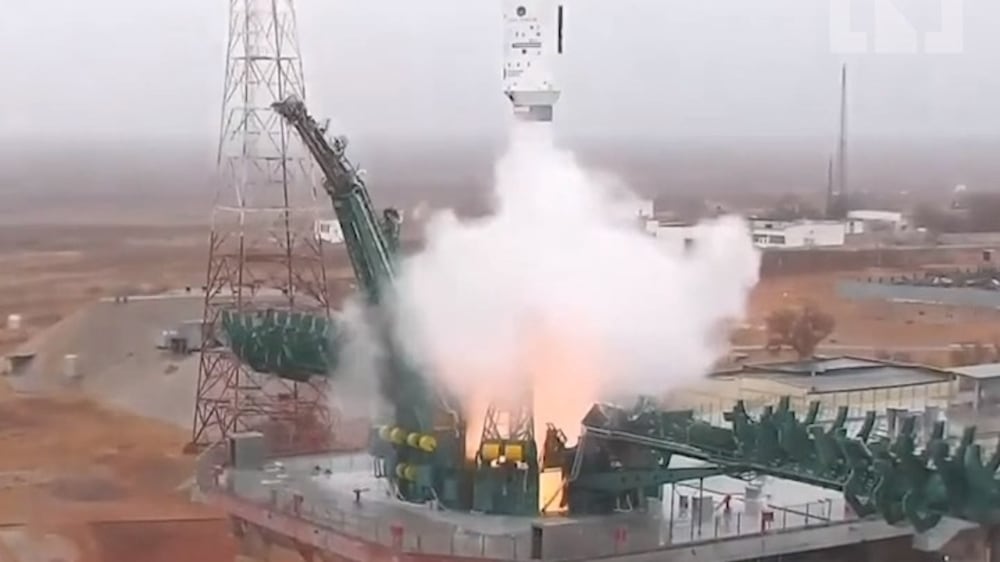
“After three years of hard work – it was so emotional,” added Zaher Chaabane, 25, one of the team’s embedded development engineers.
The launch marked a major milestone in Tunisia’s ambitions in the African space race, and was the first of 24 satellites it plans to put into orbit in the next five years.
But it was also a success in a less obvious way.
“One of the greatest points of pride for me,” said project lead Anis Youssef, “is the remarkable work we achieved with such a young team”.
Tunisia suffers from crushingly high unemployment for young people, including those with advanced degrees, with nearly one in three out of work.
With few opportunities in high-tech fields at home, hundreds of Tunisia’s best and brightest are often left to search for work overseas in Europe or the Gulf each year.
The resulting brain drain feeds into a cycle that keeps tech investment out of the country.
But with Challenge-1, Mr Youssef sought to recruit a team of young, top-tier engineers from Tunisian universities, before they had the chance to emigrate.
Many, including Mr Chaabane, began working on the project as interns while still in engineering school.
“I had classmates who left for internships or jobs in France or Canada,” said Mr Chaabane, adding that for him, the higher salaries abroad were not as compelling as the chance to work on such a high-profile project.
“This was something completely historic,” he said. “We all had shared goals and pushed each other to give the most we could.”

For Ms Triki, the allure was the opportunity to have ownership over complex problems so early in her career.
Though it required dedication and focus, “we learnt so much as a team and set the bar incredibly high,” she said.
The team in Tunis was supported by teams in Toulouse and Moscow, and received help and encouragement from Tunisian engineers abroad, including one who worked on Nasa's Mars Perseverance mission.
The recruiting process drew thousands of applications for just a handful of positions, proof, Mr Youssef said, that the talent pool for home-grown engineers in Tunisia is deep.
But for those who don’t make the cut, that deep pool of talent is one they can drown in.
At a cafe in the Ettadhamen, a working-class Tunis neighbourhood prone to unrest, a computational engineer who gave his name just as Neji, 34, explained that while some students find work abroad right away, others are left with desperate choices.
After landing a job with an international firm in Paris in 2018, he began to meet other young Tunisians “who came to Europe the other way – on boats".
Last year, a record 13,000 Tunisians boarded small boats to cross the dangerous waters of the Mediterranean Sea with hopes of reaching Europe. The number is five times higher than in 2019. Many young, well-educated people are among their ranks.
The success of the team at Telnet however could herald the arrival of a more robust market for aerospace jobs in Tunisia.
The constellation of satellites the team plans to launch in the coming years will do everything from monitor wildlife to support internet-connected devices in hard-to-reach areas, and engineering teams will have to grow to meet these new challenges.
Mr Youssef knows he can rely on Tunisia’s youth to deliver as the technology advances and the stakes grow.
“When you give young people your confidence,” said Mr Youssef, "when you give them a chance and value their work, they give you their absolute max."
